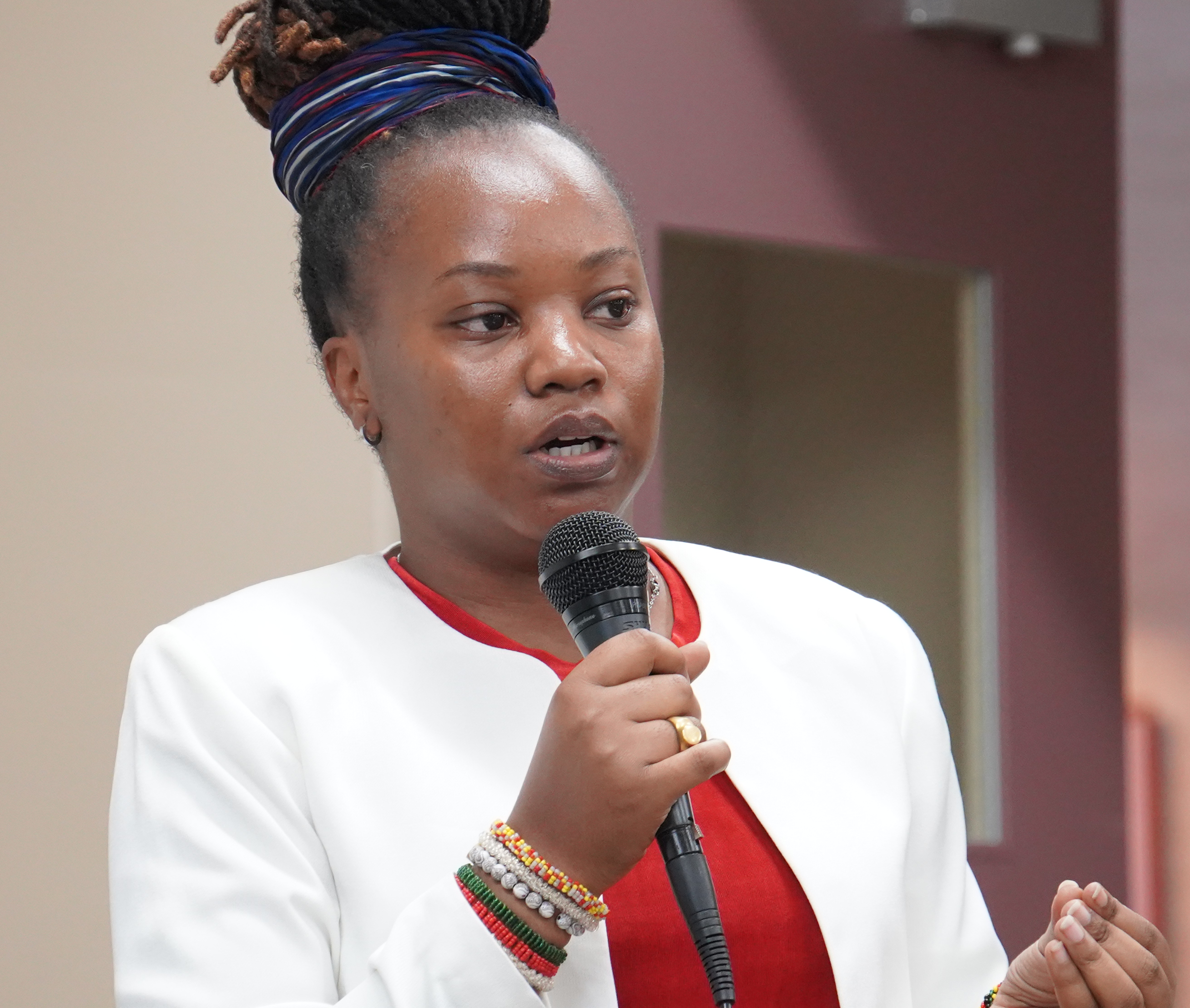Gloriose UMUZIRANENGE

| Name | Gloriose UMUZIRANENGE |
|---|---|
| Affiliation | Senior lecturer /Protestant Institute of Arts and Social Sciences (PIASS), Protestant University of Rwanda (PUR) |
| Research Field | Cultural Geography Environmental Sciences |
| Key Words | Cultural Geography, Environmental Sciences |
| Academic Career | PhD in Cultural Geography at University of Bamberg in Germany |
| Professional Career | Protestant Institute of Arts and Social Sciences (PIASS), Protestant University of Rwanda (PUR) |
| Major Works |
Outline of Research: Soil conservation in Rwanda: Challenges and Opportunities Rwanda has a strong history of supporting famers and their institutions to ensure socia economic development. This has been justified by the argument that issues with climate, soil, and a lack of education and information are the root causes of developmental issues including poverty and soil degradation. However, the majority of the solutions that have been put out have been technical in nature: terracing, draining marshes, culling cattle, etc. Additionally, farmers have been urged to collaborate and engage with the government. However little is known about famers perceptions on their role in adopting soil conservation measures and their level of participation in decision making. this this study wishes to understand the role of famers in adopting conservation measures: opportunities and challenges they face. Recent Results: ⅰ. Umuziranenge, G., Muhirwa, F., Nshimiyimana, B., Majyambere, M., (2021): Peoples's perceptions on conservation opportunities and Challenges for Nyungwe and Gishwati-MukuNationa Parks in Rwanda. ASC-TUFS working papers 2020. ⅱ.Umuziranenge, G., Ntiranyibagira, E., (2019): Nature conservation policies and practices in Africa: Critical analysis, ideological challenges, and strategic vision for protected areas sustainable management. ASC-TUFS Working Papers 2019 Challenges of Development and Natural Resources Governance in Africa: ⅲ. Umuziranenge, G. (2019). Community Perceptions of Human-wildlife Conflicts and the Compensation Scheme around Nyungwe National Park (Rwanda). International Journal of Natural Resource Ecology and Management, 4(6); 185-217, DOI: 10.11648/j.ijnrem.20190406.15 ⅳ. Umuziranenge, G., Muhirwa, F. (2017). Ecotourism as potential conservation incentive and its impact on community development around Nyungwe National Park. Imperial Journal of Interdisciplinary Research. Vol-3, Issue-10. 447-456 ⅴ. Umuziranenge, G. (2019). Environmental Justice and Women Empowerment in Nyungwe National Park (Rwanda): Case Study of Kitabi Women Handcrafts Cooperative. International Journal of Environment and Climate Change, 77-87; DOI: 10.9734/IJECC/2019/v9i230098. ⅵ. Umuziranenge, G. (2019). Parks' Governance and Management in Rwanda: Opportunities and Challenges of the Community Participation for a Sustainable Conservation: Case Study of Nyungwe National Park. International Journal of Environmental Protection and Policy, 7(2), 61-71; DOI: 10.11648/j.ijepp.20190702.13 ⅶ. . Muhawenayo, J., Muvunyi, S. & Umuziranenge, G. (2016) Impact of Agakiriro on employment and wellbeing of local youth Karongi, Kamonyi & Huye Districts. (PIASS Publications Series no 8). ⅷ. Uwimbabazi, P. Bikorimana, G. Umuziranenge, G (2016). Traditional Approaches to Conflict Management and Poverty Reduction in Modern Rwandan Society: Case studies of Nyanza, Huye and Gisagara districts, PIASS Publication Series, 7 (P 75-94). Huye. ⅸ.Umuziranenge. G. (2016) Role of churches in addressing climate change: in Global ethics journal ⅹ. PIASS (2015) Study on Church governance for Rwanda Governance Board, Kigali. |

